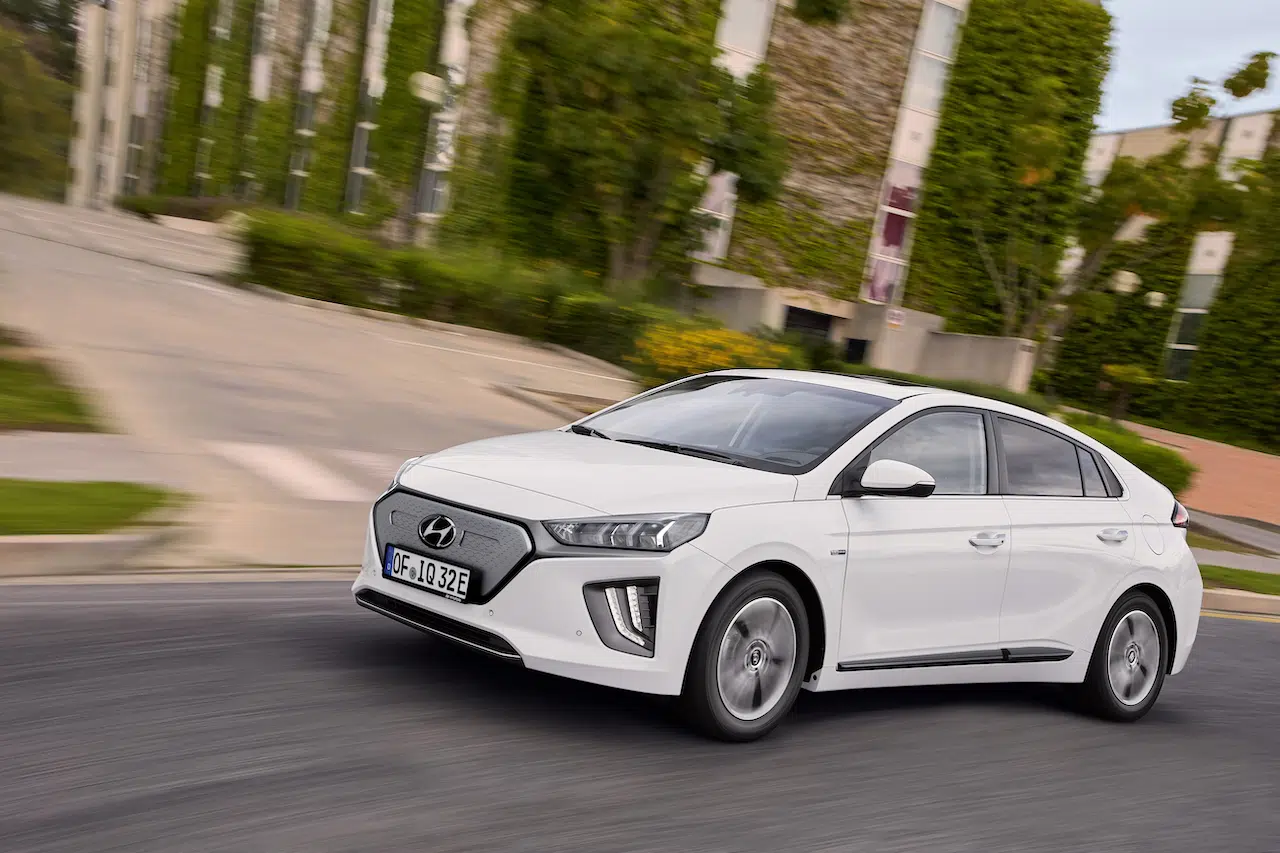Hyundai is phasing out the Ioniq sedan
After six years of production, Hyundai sends its e-car Ioniq into early retirement.
The two-hybrid versions of the sedan - one with, one without a plug - will also no longer be built as of July, according to the manufacturer. The last Ioniq to roll off the production line in Ulsan, South Korea, will mark the end of a significant chapter in Hyundai's recent history, Hyundai said. When the model was launched in 2016, it was the first car in the world with three electrified powertrains to choose from Hybrid, Plug-in Hybrid and Battery Electric.
The global discontinuation of the Ioniq represents a long-planned decision by Hyundai to meet changing consumer demands in the automotive sector, the manufacturer said. When it was launched in 2016, the Ioniq was one of the most efficient e-cars on the market. Many an e-driver is said to have managed to drive the Ioniq with less than ten kWh consumption per 100 kilometres in everyday driving.
"The Ioniq's outstanding efficiency paved the way for Hyundai's advances in electrified models and laid the foundation for the current Ioniq range," the manufacturer added. The Ioniq was the first mover, setting new standards with high safety and efficiency - which did not go unnoticed by award winners and other institutions: after its release in 2016, the Ioniq was widely praised for its design, winning the coveted Red Dot Design Awards and two Good Design Awards, among others.
The compact sedan with the striking aerodynamic hatchback design has sold almost 136,000 units since its European debut in 2016. Most recently, sales of the electric variant, which costs at least 35,350 euros, have been sluggish. By way of comparison: Hyundai's compact SUV, the sister model in terms of technology, the Kona Electric, achieved a good 17,000 new registrations in the same period. The mid-size SUV Ioniq 5 based on Hyundai's new 800-volt architecture, which has been available for a good year, also sold significantly better, with a good 8,000 new registrations.
